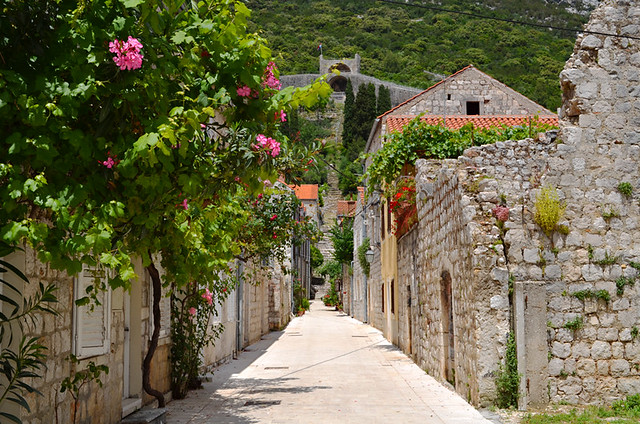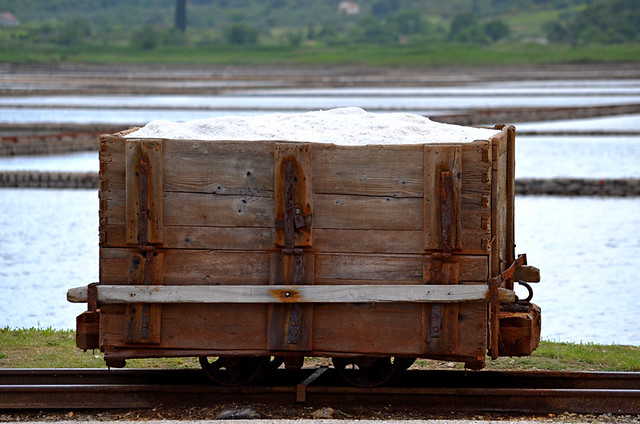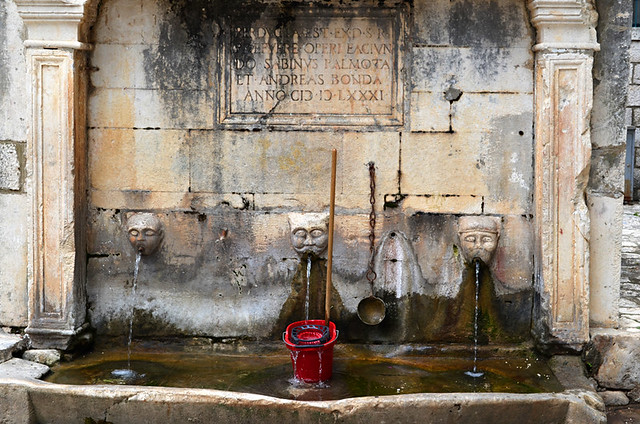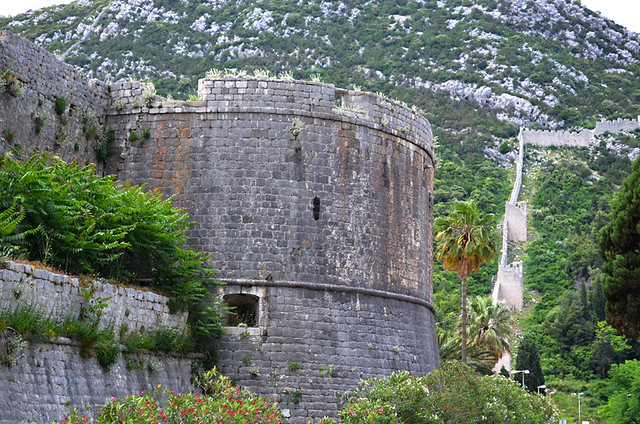I have mixed feelings about missing the ferry from Peljesac to Mljet in Croatia. On the one hand it means we’re going to have less time to spend on Mljet. On the other, we’ve got time to have a closer look at the wall.
The wall is the Great Wall of the Ragusan Republic. Back in its day (14th century) it was seven kilometres long with more than forty towers and five fortresses along its length, all of which was designed to help keep Dubrovnik safe from invaders.
We’d spotted it when we drove past on the way to Korcula a few days earlier. Impossible not to. This is a Great Wall of Chinese proportions. Okay maybe not quite Chinese proportions, but clinging to the hillside for 5.5 kilometres makes it the longest wall in Europe.
Surrounded by vineyards, olive groves and the Adriatic, Ston is another of those ‘please give my eyes a rest from all this scenic beauty’ Croatian locations. The town of Ston itself looked pretty and interesting and worth an idle explore in its own right.
Apart from boasting the longest defensive wall in Europe, Ston also claims to have the oldest salt works in the world. Not bad for what is a small town. It’s also got one of the most expensive toilets I’ve ever come across.
“Five euros,” the woman at the entrance to the stone block outside of the town’s walls holds out her hand.
“Yeah, right,” I laugh and turn away. My bladder will hold until I invest in a beer that comes accompanied by a free toilet visit.
Ston is borderline too touristy but has enough charm to get away with it. The wall attracts the visitors but the stone streets with their geraniums and wandering vines are pleasant for simply strolling in the sunshine, perusing menus whose dishes and prices are more or less interchangeable.
As it’s lunchtime, and my bladder is complaining, we settle on eating at Konoba Stagnum, the old name for Ston, before further exploration. It has a pretty courtyard, the beer is refreshingly cool and my eclectic pizza – peppers, cured ham and fried egg – is tasty. Andy’ meat and pasta dish is only okay. It’s an ‘easy on the eye’ and friendly spot to dawdle over lunch.
By the time the pepper pizza is consumed we don’t really have time to walk the wall to Mali Ston where the wall ends and famous freshwater oysters have been keeping the locals and visitors frisky since a Roman slipped one down his throat and proclaimed ‘who’s up for an orgy then?’.
We continue our meandering explore, turning up alleys at the merest promise of a scenic corner. Some areas of the town aren’t as in good nick as you’d expect of somewhere so historic. The further from the town centre we walk, the more some old buildings seem neglected. Instead of detracting they add character; it’s not overly manicured.
I’m especially taken by the public fountain, built in 1581, where a trio of heads spew water into a trough. I can’t decide whether the cheap bucket and mop under one ruins the overall look or enhances it. There’s still a tin drinking cup attached to the fountain. How old that is, who knows? But it looks like a lot of lips have supped from it. Mine won’t be one of them.
Although we thought we had plenty of time, the sand grains have slipped through the hour glass faster than we realised and it’s time to return to Prapratno to catch the ferry.
I’m not sure Ston warrants too much time spent in its pleasingly pretty streets but it deserves more than our brief taster. Plus there’s still that wall to walk and those aphrodisiac oysters to swallow.
We will just have to return at some future date. No hardship; Croatia is crying out for a return visit.
Jack is co-owner, writer and photographer for BuzzTrips and the Real Tenerife series of travel websites as well as a contributor to online travel sites and travel magazines. Follow Jack on Google+










6 times back in PELJESAC !! how to learn real life to my son 12 years old.